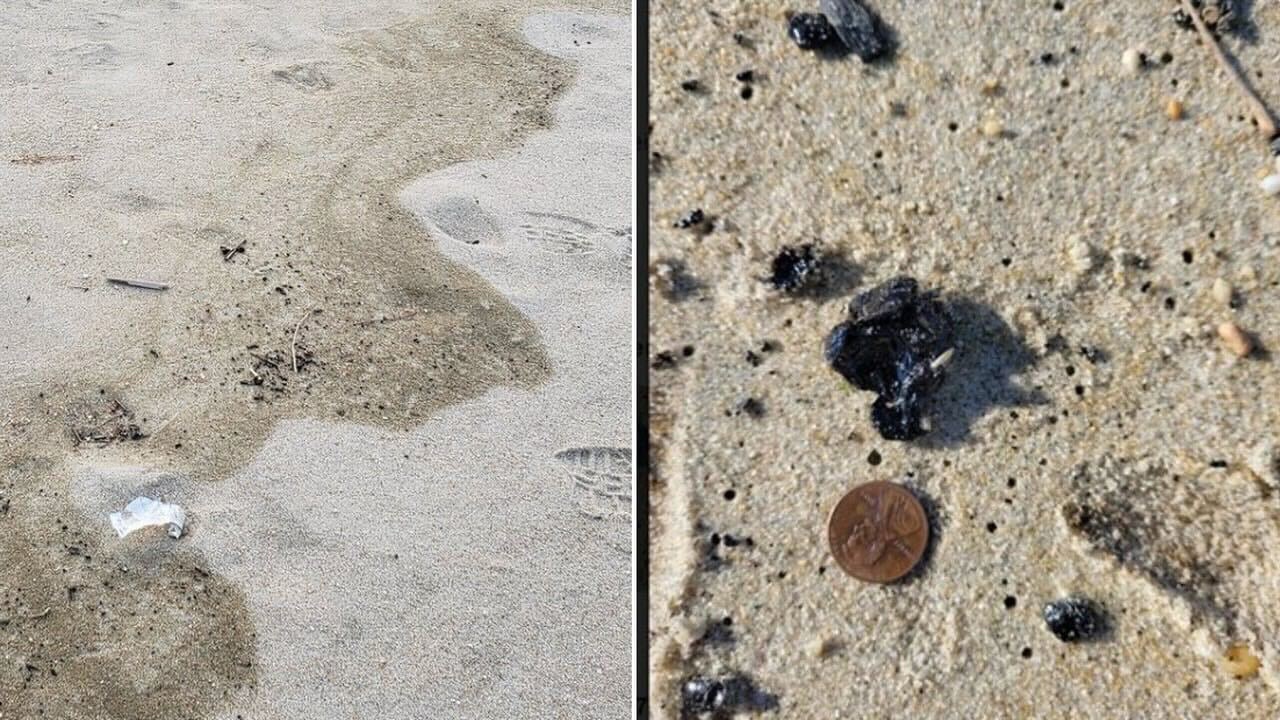
Dog goes sledding down backyard snow slopes
A 12-year-old Sheltie dog named Roxie was seen sledding in her backyard in Waukesha, Wisconsin. See the dog glide down the hill — and watch as another dog winds up zooming past her!
Authorities in New Jersey are investigating after they were notified of mysterious tar balls peppering the beaches of the Jersey Shore.
The U.S. Coast Guard (USCG), the New Jersey Department of Environmental Protection, and Monmouth County officials said that tar balls of various sizes and shapes have been found along the Jersey Shore in recent weeks.
In a press release, the USCG said that officials were first notified about the mysterious tar balls ranging in size from approximately 1–2 inches and smaller on an approximately 6-mile stretch near Seven Presidents Oceanfront Park on Tuesday morning.
The state Department of Environmental Protection, the U.S. Coast Guard and Monmouth County officials dispatched personnel to identify the source of pollution.
POLICE RESCUE WOMAN FROM SERIAL KIDNAPPED IN SHOCKING BODYCAM VIDEO
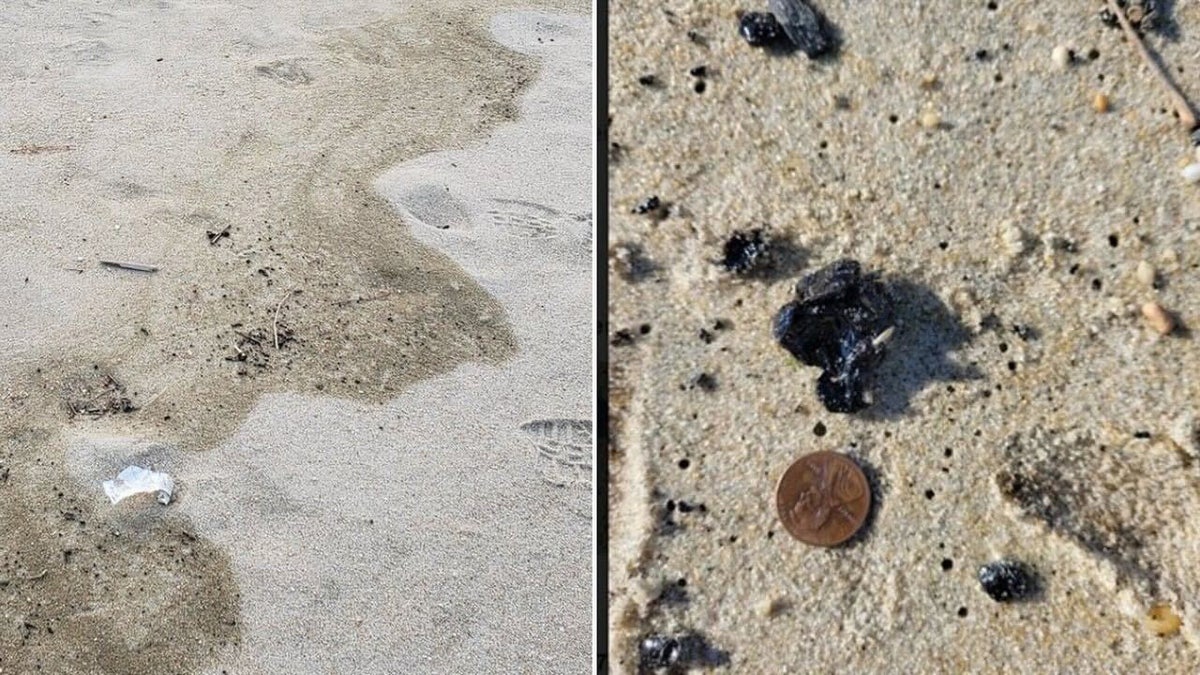
The cleanup of 1-to 2-inch tar balls found on Jersey Shore beaches in and around Long Branch is underway. (U.S. Coast Guard)
Investigators conducted a fly-over on Tuesday, but were unable to identify any oil on the surface of the water, the USCG said.
According to the National Oceanic and Atmospheric Administration, tar balls are created when crude oil on the surface of the ocean gets formed into balls by wind and waves. The balls are sometimes created by oil spills, but can also result from natural oil seeps from the ocean floor.
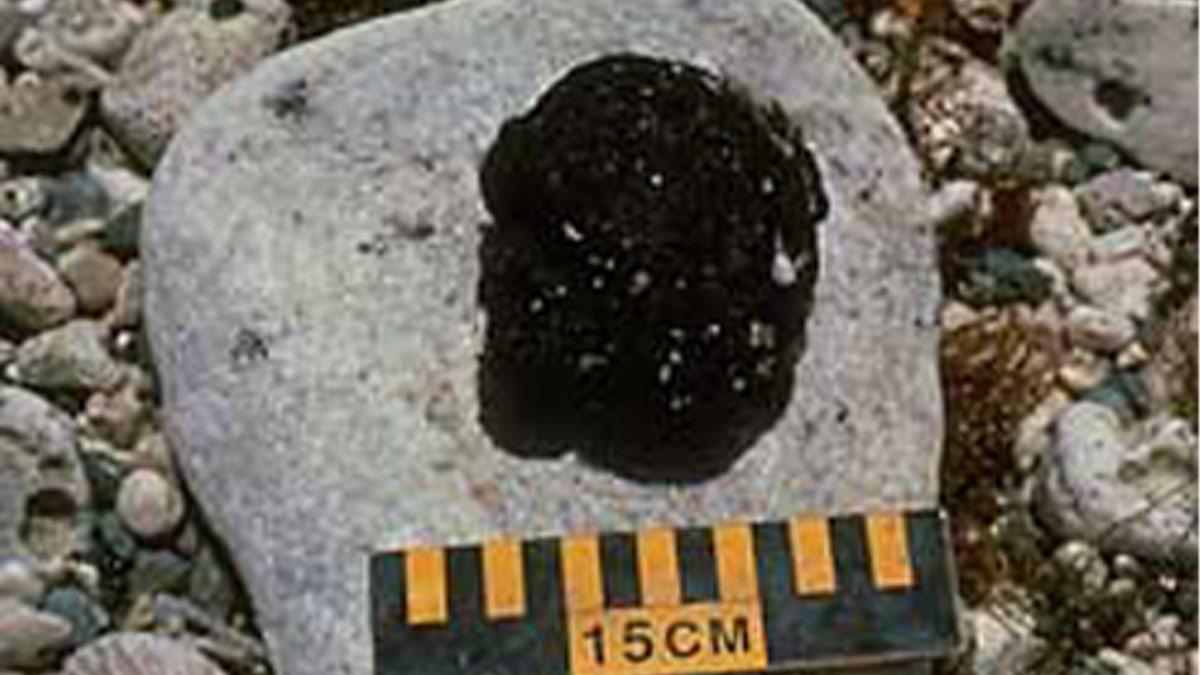
An example of a tar ball provided by the National Oceanic and Atmospheric Administration. (National Oceanic and Atmospheric Administration)
The USCG said that crews are continuing to investigate the source of the tar balls and are beginning clean-up efforts along the popular beaches of the Jersey Shore.
TEXAS OYSTER HARVESTS PLUNGE AGAIN AS CLIMATE CHANGE AND OVERHARVESTING THREATEN INDUSTRY, OFFICIALS SAY
The Coast Guard has opened the Oil Spill Liability Trust Fund in order to swiftly initiate response actions, and an oil spill removal organization (OSRO) has begun shoreline assessment and clean up.
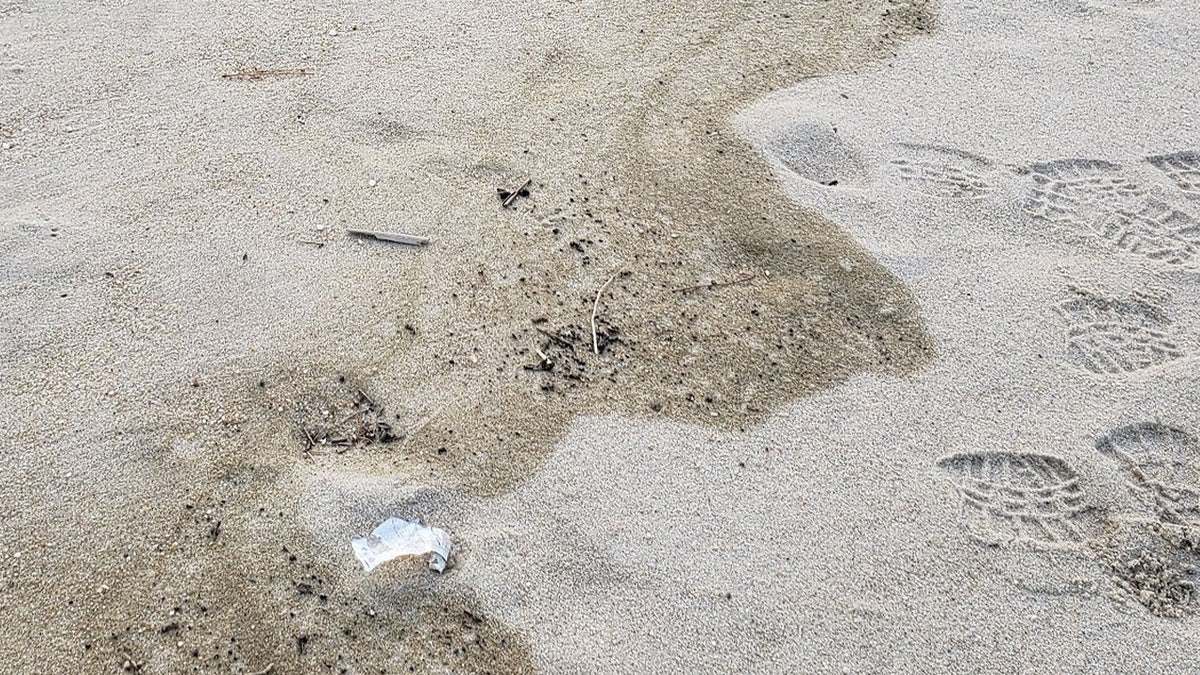
The tar balls are spread over an approximately six-mile area between Sea Bright and Seven Presidents Park in Long Branch, New Jersey. (U.S. Coast Guard)
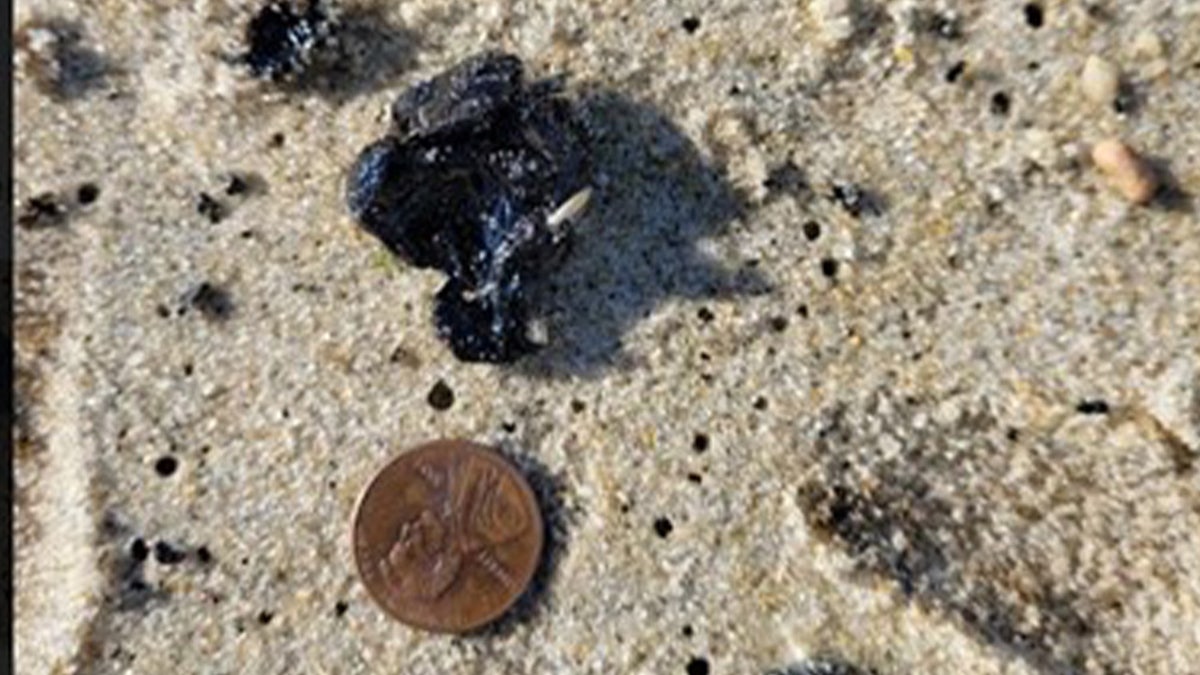
Beachgoers and mariners are advised to avoid contact with the tar balls. (U.S. Coast Guard)
Authorities said that cleanup crews are working to assess the shoreline and waterway impacts from Sea Bright, New Jersey to Long Branch Beach, New Jersey.
CLICK HERE TO GET THE FOX NEWS APP
“Beach goers and mariners are advised to avoid contact with the tar balls,” Coast Guard officials said. “Anyone who notices any tar balls or oil sheen in the area should contact the National Response Center at 1-800-424-8802.”







